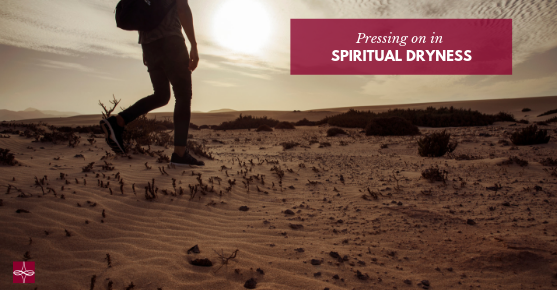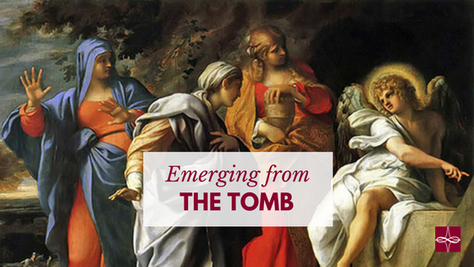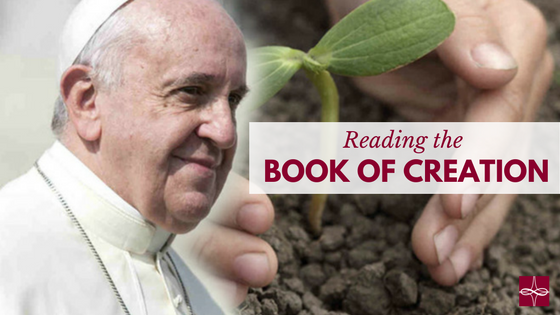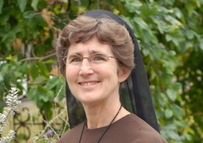|
O God, Thou art my God, I seek Thee, my soul thirsts for Thee; my flesh faints for Thee, as in a dry and weary land where no water is. -Psalm 63:1 There are seasons in the spiritual life in which you feel parched, as if you’re wandering the desert without refreshment. Silent reflection is filled with distraction. Prayer seems awkward, difficult, or boring. Your heart feels lifeless. Lately, despite my attempts to find escape, this sums up my prayer experience. It doesn’t matter that I infuse my days with the Mass readings, a Rosary, Catholic podcasts, or spiritual books. Right now, it seems so much easier to turn on a show or scroll through social media than to pray. Any time I resolve to do the latter, all the things I need to do bombard my mind, or the texts and notifications come in streaming. At Mass, I hear the beautiful words of Scripture and the homily but feel hollow in the pew. Am I a bad Catholic? Is something wrong? During times like these, many people of faith get disheartened. They think they have done something wrong in the spiritual life, that God has abandoned them, or that their faith must not be relevant anymore. But all people of faith will experience this to some degree at one point or another! It is often hard to trudge through when warm feelings are absent and prayer requires intentionality and effort, but these times in the spiritual life can be the most fruitful of all. Our hearts can grow cold and tepid for two reasons: either we’ve slackened in the spiritual life and slowly let the cares of the world take over – like the weeds that choke out the good seed in the parable – or God is calling us to deeper faith and growth. If it’s the latter, this is often a time of spiritual maturation that deepens our faith and love. We choose to cry out to God in prayer not because it makes us feel good or holy or satisfied, but because we trust in God and love him despite how we might feel. We’ve often heard that love is a choice, not a feeling. Therefore, when feelings are absent, God is inviting us to choose him with a love that is selfless and trusting. The feelings that are lukewarm, indifferent, or distracted are part of the spiritual dryness St. Ignatius of Loyola called “desolation.” According to St. Ignatius, there are moments in the spiritual life of both consolation and desolation. In times of consolation, we feel especially close to God, find prayer easy, fulfilling, and natural, and have peace and joy. I remember one time talking to a priest in spiritual direction who asked how things were going spiritually. I told him I almost felt guilty because all was going smoothly. He chuckled and told me to enjoy this time of consolation because it wouldn’t last forever—advising me to write down my feelings and spiritual observations as something to look back on in times of dryness or sorrow. A quote attributed to St. Philip Neri sums up this ebb and flow: “As a rule, people who aim at a spiritual life begin with the sweet and afterward pass on to the bitter. So now, away with all tepidity, off with that mask of yours, carry your cross, don’t leave it to carry you.” How can you carry your cross during this time? Below are some tips to reinvigorate your faith and get you through this time of spiritual dryness.
It is important if you feel indifferent to your faith right now not to give up. I encourage you to re-double your efforts in prayer, seek help from your community and the saints, and persevere. Know that this is a completely normal phase of the spiritual life, that even the saints felt arid at times, and that you are not alone.
3 Comments
What is the best method of evangelization? In an era when 35% of young adults (ages 18-29) identify as having no religion at all, we as Christians ought to consider whether our approach to evangelization is working. Too often we think that if those outside the fold just heard the right arguments, if they just read--really read--the right things, they would see the capital “T” Truth. We press onto our non-religious friends blogs and books, podcasts and pamphlets, all with answers to the usual questions skeptics raise (What about evolution? What about violent extremism? Etc.) and we assume that they’ll suddenly just see the light and believe. It should be apparent by now that this approach doesn’t work. Imagine doing this in any other context. Paraphrasing an analogy from Bishop Robert Barron, let’s imagine that you are taking a group of seven-year-old boys out onto a baseball field for the first time. You say as the coach, “Now boys, today I’m going to teach you about the incredible game of baseball. It’s a game that you’ll love your whole life. It’s a beautiful game of strategy and strength, precision and unpredictability. Ready to get started? Good. For your first lesson in this game, I’m going to teach you the infield pop-fly rule. Now, yes, it’s a ticky-tacky rule, but it’s actually crucial and can make the difference in a big play. Now let’s go sit on that bench in the dugout and take a look at this little diagram I have here about what to do when you encounter this tricky little hit.” What seven-year-old walks away from that with a love for baseball? Rather, says Bishop Barron, you ought to introduce the little guy to the beauty of the game. Take him to the stadium and let him see the best of the best playing. Let him watch as the batter slams one to left field only to have the ball caught in a running dive by the outfielder—his whole body outstretched from head to toe, muscles straining in his neck, eyes up, glove out, lunging across the green as he just barely catches the ball with an audible thunk! Let the boy see the magic of the game unfold before him. When we allow a beautiful thing to be beautiful, it speaks for itself. There’s no need to come armed with arguments. The beautiful thing itself lays hold of our soul and draws us in. For the seven-year-old baseball player, he sees the beauty of the game, he desires to participate, and then once he himself is playing, he starts to learn the nuances of the rules and how the rules themselves are part of what makes the game beautiful. In time, the boy is so in love with the game and its rules that he is moved to share that love with others, to get them to see what he sees. Citing the 20th century theologian Hans Urs von Balthasar’s theology of aesthetics, Barron says that beauty claims the viewer, changes him, and then sends him on mission. Theologically, beauty is one aspect of the three properties of being called the Transcendentals – the True, the Good, and the Beautiful, all of which together lead us to God, who is Being itself. The trick, of course, is determining the order of our approach. When we start our mission of evangelization with truth we too often shut down dialogue with non-believers, who often find themselves enmeshed in a culture of moral relativism and self-made meaning – who are you to tell me what’s true? I agree, with Balthasar, Bishop Barron, and others, that we ought to flip the order around. Let the beauty of our Christian faith–whether it is displayed through our liturgy, our sacred art and music, our actions toward one another, or the radiant light of Christ shining through us–draw people in. Let them experience the beauty of the Faith so that they desire to participate in it, in however small a way at first. Consider this hypothetical scenario: A non-believer friend sees you act charitably toward someone who has made you suffer. He sees you forgive and put the wrong behind you. He is taken aback by your generosity. He thinks that he would like to be like that too. In time, he finds himself emulating you. In time, he begins to see that Christians as a people are not all hypocritical. In time, he begins to think that Church teaching might actually engender goodness in human beings in general, not just you. In time, he finds himself agreeing with the basic moral vision of Christianity, even if he rejects the faith itself. In time, he happens to hear Christ’s Sermon on the Mount and begins to wonder what it all means. In time, your beautiful action leads him home. As Christians, our love for Christ and our love for the Church sometimes make us blind to the sincerity of many skeptics. We dismiss their often earnest desire to do and be good merely because we’ve determined that they can’t do it without God. We feel like it’s our duty as Christians to steer them straight, bring them to the fold. Yet, the next time we consider jumping into the Facebook fray of endless arguments about religion and morals, let us instead refresh our screens, share something beautiful, and move on. Let us allow beauty to soften our hearts of stone and turn them to the sacred heart of Jesus. Question for reflection: Which of your interests and passions in life started with an experience of beauty? Who among us seems to need an experience of the beautiful and how can you be the one to give it to them? Not long ago, I sat listening to the words of my university’s honored commencement speaker, Peggy Noonan, who entreated us to do something after we graduated that day: “You must not stop reading books. That’s all. If you seek a happy and interesting life, one of depth, meaning and accomplishment, you must read books.” I thought that to be a simple message—but refreshingly concrete and unique. As she pointed out, to get to graduation day my peers and I had read a number of books. Most were works assigned as required reading for a course rather than for leisure. Continuing to read after a life in school would benefit us, Noonan said, as we moved through life to new places, with new people, and into new positions.
As a Catholic, I took Ms. Noonan’s advice as an opportunity to seriously take up spiritual reading. I previously had taken advantage of my Catholic high school’s library to some degree, but I often had to let spiritual reading take second place behind the demands of other commitments. This continued in college with the much larger university library collections. There seemed to be no time to read for the sake of reading, spiritual or otherwise. While I may not have had much choice at the time, I know that when the faithful disregard the great literary works of Catholicism, we do ourselves a great disservice. With its full and ever-expanding breadth of writings, the Church encourages the faithful to enrich themselves through the works of popes, saints, and the Magisterium, along with theologians, mystics, clergy, and religious (see CCC 133). These can offer many insightful perspectives on the Faith, but they cannot replace reading the Bible! As St. Jerome remarked, “Ignorance of Scripture is ignorance of Christ!” Similarly, the Second Vatican Council affirmed the Word of God as “food for the soul, the pure and everlasting source of spiritual life.” (Dei Verbum, 21) We may spend years studying books for school and for professional development—how much more should we pore over the Word of God “to build you up and give you your heritage among all those who are sanctified”? We nourish ourselves with physical food multiple times a day, shouldn’t we do the same with spiritual nourishment? When I worked in a Catholic bookstore, my boss shared this insight from St. John Bosco: “Only God knows the good that can come about by reading one good Catholic book.” Customers might have wandered in to buy a rosary or Catholic memorabilia, but many times I noticed them stop in front of a display of books on family life, spirituality, or healing prayers. As I assisted them with their selections, many would share their favorite devotions or ask for guidance in selecting a title. The customers were seeking writings by those whose experiences they could relate to—authors whose work would speak to our customers just as Sacred Scripture speaks to each of us and motivates us to seek and undertake the will of God. On other occasions, customers would simply be looking for something new to deepen their spirituality and share what they learned with their family and friends. I have observed that the benefits of supporting Catholic bookstores extend in many ways: not only does it help a business to continue providing accessible, quality literature, but it also offers customers the chance to find something meaningful and wholesome that will be useful in subsequent questions, reflections, and experiences long after the first reading. Consider dusting off your Bible or picking up that Catholic book on your table. Spend a few moments and allow yourself to be touched by the author’s message and then share the experience with loved ones. Start a book club with friends and neighbors to discuss a spiritual work and apply it to your day to day life. The words of an approved source can galvanize, console, clarify, educate, or guide your spiritual formation. As Ms. Noonan reminded us, continual reading throughout our lives, especially of spiritual works, will give our lives greater depth and meaning. Start by picking up the book. Questions for Reflection: Is there a spiritual book or book from the Bible you’ve been meaning to read? How has a book or Scripture passage impacted your life? “Rejoice! Hidden within your life is a seed of resurrection, an offer of life ready to be awakened.” -Pope Francis The world in which we live is filled with distraction and noise. I realized this in a deeper way as a new mom nursing my newborn at all hours. During those late night feedings, I needed something to keep myself awake and found myself gravitating towards my phone more and more. It was easy to hold and look at in the dark, and I found it nearly impossible to concentrate on reading a book, let alone holding it open as my newborn moved about. By the time Lent rolled around, I had been watching online TV episodes, checking my various social media feeds consistently, or scrolling through house listing websites. In our culture, this type of electronic consumption is easy to fall into. And while these sites or activities are not necessarily wrong or evil, I felt that I was more and more consumed by things of this world. In prayer, I felt the Lord asking me to be consumed with Him rather than by materialism, technology, or my own desires. What we consume defines who we are and what we become. What started out as a way to keep myself awake in those exhausting first weeks and months of motherhood had become a small addiction. What if instead, I used those minutes and hours to pray, to be still with my thoughts, to be present to my son? I had a quiet Lent. Formally, I gave up “scrolling.” I did not look at social media feeds, online shopping websites, or TV shows. I also limited my consumption of music and movies. I felt that I had truly entered a desert and made an ongoing “silent retreat” without completely removing myself from the world. I was becoming a “contemplative in action” and realized that even as a parent and married person, I could still carve out time for Christ each day through silent reflection. Instead of consuming media, I prayed and I was silent. I used my phone only for Scripture reading or Catholic reflections. I prayed the Rosary and the Divine Mercy Chaplet. I read spiritual books. I thought of all the friends and family that had asked for my prayers. I offered up this media fast for them and for the needs of the world. This was hard. I noticed how many times my hand gravitated towards the screen. I noticed how much time I had spent behind one. Now that I have emerged from the season of Lent, I can’t help but wonder how I’ve changed. In his homily at the Easter Vigil this year, Pope Francis spoke of the changed faces of Mary Magdalene and the other Mary after they visited Christ’s tomb. The two brave women ventured out in the early hours of the morning “pale and tearful” and “walked like people going to a cemetery.” They had not yet encountered the Risen Lord. When they arrived, they were met with miraculous, life-changing news: “He has been raised just as he said!” The women leave rejoicing and run immediately to tell the disciples, to evangelize. Their faces are completely transformed. This leads me to reflect, “How has my face transformed this Easter season? Have I emerged from the tomb of Lent rejoicing?” Lent and Easter are about transformation—going from the tomb to new life. Christ is raised from the dead and extends this life to us all. He has opened the doors to our salvation. We don’t have to wait for death to experience this new life. By being consumed by Christ Himself, through prayer and most powerfully through the reception of the Eucharist, we are enabled to become Christ-bearers and share the joy of new life with all we encounter. Pope Francis invites us to experience and live this transformation in our everyday lives, saying: The heartbeat of the Risen Lord is granted us as a gift, a present, a new horizon. The beating heart of the Risen Lord is given to us, and we are asked to give it in turn as a transforming force, as the leaven of a new humanity. In the resurrection, Christ rolled back the stone of the tomb, but he wants also to break down all the walls that keep us locked in our sterile pessimism, in our carefully constructed ivory towers that isolate us from life, in our compulsive need for security and in boundless ambition that can make us compromise the dignity of others. After 40 days of penance and sacrifice, it’s tempting to go back to our old ways—to “carefully constructed ivory towers” and a “compulsive need for security.” “We can grow accustomed to living with the tomb,” Pope Francis cautions. This Easter season, we must decide to leave the tomb: to stay present, to pray, to choose to be consumed by God. I have learned that in so doing my life is made richer and more meaningful. When consumed by God, I am better able to be present to and love others. As we continue our victorious journey through the Easter season, I invite you to consider how your life has changed as a result of your Lenten journey. Have you emerged from the tomb? How has your face changed? For more resources on Lent and Easter, please click here. 9/1/2016 Reading the Book of Creation: Reflections on the World Day of Prayer for the Care of CreationRead NowOn the Feast of the Transfiguration, August 6, 2015, Pope Francis established the “World Day of Prayer for the Care of Creation” to be celebrated annually on September 1. In doing so, the Holy Father shared his concern for creation with Ecumenical Patriarch Bartholomew, who initiated a similar day of prayer in the Orthodox Church in 1989. For Pope Francis, the World Day of Prayer for Creation reminds Catholics of our “vocation to be protectors of God’s handiwork,” a calling and responsibility which is “essential to a life of virtue; it is not an optional or a secondary aspect of our Christian experience” (Laudato Si’ 217). As we celebrate this second annual World Day of Prayer for Creation, it is fitting to reflect on our vocation as Catholics to care for creation. Though we have a long-standing tradition of caring for creation that goes back to the early Church Fathers and has been promoted more recently by Pope Emeritus Benedict and Pope St. John Paul II, Pope Francis has brought this aspect of our faith into the limelight. I believe there are two main reasons for this: conversion and evangelization. The ecological crisis, the Pope tells us, is a summons to profound spiritual conversion that leads to developing a deeper relationship with the world around us and recognizing that “the life of the spirit is not dissociated from the body or from nature or from worldly realities, but lived in and with them in communion with all that surround us” (LS, 216). We are called to live in the world, not apart from it. We get to the spiritual through the physical. Pope St. John Paul II also taught us this in his Theology of the Body. This conversion also involves recognizing our sins against creation. In Laudato Si’, Pope Francis reminds us that “human life is grounded in three fundamental and closely intertwined relationships: with God, with our neighbor and with the earth itself” (LS, 66). Our faith exhorts us to live well, not only with God and with our neighbor, but also with the earth. One practice for this World Day of Prayer for Creation could be to examine our consciences and consider how we have treated the created matter with which we have been entrusted. Have we been selfish and unconcerned for the needs of others, consumeristic, gluttonous, unaware of the gift that creation is to us? Perhaps we have wasted food, water, or energy unnecessarily. Perhaps we watched hours of Netflix when we could have been outside walking with a friend, serving the poor, or contemplating nature. Do we feel compelled to have the latest iPhone or the largest car? Our Holy Father points out that we need to “replace consumption with sacrifice, greed with generosity, wastefulness with a spirit of sharing,” and he quotes Patriarch Bartholomew in exhorting us to cultivate “an asceticism which ‘entails learning to give, and not simply to give up. It is a way of loving, of moving gradually away from what I want to what God’s world needs.’” (LS, 9). In our process of conversion we can follow the example of Pope Francis’ namesake, St. Francis of Assisi, in doing the inner work needed to embrace creation as “Brother” and “Sister.” I believe that Pope Francis, like the two popes preceding him, also sees our Catholic concern for ecology as a path into the New Evangelization. The beauty of creation speaks to the heart and can awaken human persons to a deep interior longing for the divine source, for the Creator God. Great spiritual writers like St. Bonaventure called the created world the “book of creation,” because the created world is constantly speaking to us of God. As humans we learn to understand the language of creation by spending time outside, by developing a heart for creatures, by learning to see the vestiges of God’s love in the beauty, diversity, and extravagance of the natural world. In doing so, we come closer to God and to understanding his plan for us and for the world. It’s a two-way street: We need to learn the language of creation in order to better care for the created world. At the same time, in that conversation, we are drawn into a deeper relationship with God, the Creator. As we experience this ourselves, we are driven to share the experience with others in a new kind of evangelization. In our fast-paced world, being attentive to creation reminds us that “we are not God” (LS, 67), for if we pause and look at the beauty surrounding us, we experience a beauty that transcends anything we humans can create. At the same time, we become aware of our unique creation as humans and the moral structure inscribed into our very nature (LS, 155). Being outdoors is also a healing tonic to assuage the effects of technology and the pressures of the virtual world in which we spend so much of our time. It is an antidote for the “technologization” of society and keeps us in touch with true reality. Let us then, as we celebrate this World Day of Prayer for Creation, embrace with joy the opportunities for conversion and evangelization that lie ahead! Click here for more resources on ecology, the World Day of Prayer for Creation, and Laudato Si.
|
Details
Archives
July 2024
Categories
All
|
About |
Media |
© COPYRIGHT 2024 | ALL RIGHTS RESERVED











 RSS Feed
RSS Feed